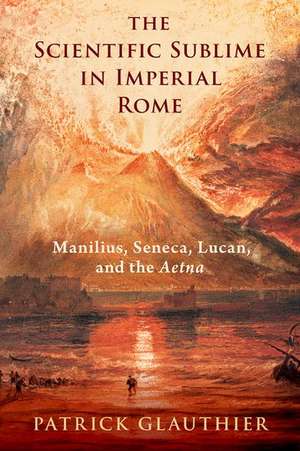The Scientific Sublime in Imperial Rome: Manilius, Seneca, Lucan, and the Aetna
Autor Patrick Glauthieren Limba Engleză Hardback – 8 mai 2025
Preț: 584.94 lei
Preț vechi: 722.15 lei
-19% Nou
Puncte Express: 877
Preț estimativ în valută:
111.96€ • 121.66$ • 94.11£
111.96€ • 121.66$ • 94.11£
Carte disponibilă
Livrare economică 31 martie-14 aprilie
Preluare comenzi: 021 569.72.76
Specificații
ISBN-13: 9780197787557
ISBN-10: 019778755X
Pagini: 312
Dimensiuni: 166 x 241 x 32 mm
Greutate: 0.54 kg
Editura: Oxford University Press
Colecția OUP USA
Locul publicării:New York, United States
ISBN-10: 019778755X
Pagini: 312
Dimensiuni: 166 x 241 x 32 mm
Greutate: 0.54 kg
Editura: Oxford University Press
Colecția OUP USA
Locul publicării:New York, United States
Notă biografică
Patrick Glauthier is Assistant Professor of Classics at Dartmouth College.
